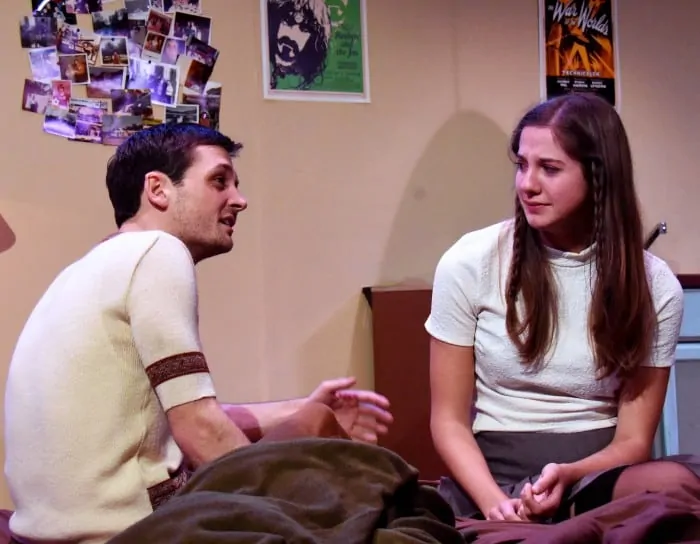Kenneth Lonergan’s This is Our Youth is about rich, bored, high kids in the Upper West Side of New York City in the Reagan era with a bundle of cash and a good drug dealer network. This goes about as well as you’d expect. Kicked out of his house because of his constant marijuana use, Warren steals $15,000 from his wealthy father and runs to the apartment of his friend Dennis. The two boys buy cocaine, argue with and about girls, confess their problems, and try to figure out how Warren can possibly return the full sum to his dad. All of the action takes place in Dennis’s messy studio apartment (no food, no trash can, plenty of trash) over the course of two days in 1982. The play reaches no satisfying conclusion, leaving the characters with a better understanding of each other but no solutions to their problems.
Lonergan’s writing is raw, real, and anything but politically correct. The play sometimes stalls precisely because it’s about characters who struggle to express themselves and communicate. Dennis often talks in circles for infuriatingly long. He’s essential to the show as an enabler of Warren, but it’s the scenes between Warren and Jessica that really captivate. In the midst of all their arguments and assumptions, they have moments of brilliant sweetness. When Warren asks Jessica whether he can kiss her, she stutters out, “Sure—I mean, whatever’s expedient.” When she unfairly asks him whether he’d rather talk to her or mess around with her, if he could only choose one, he launches back, “That would depend on what we’d already been doing more of.”
Lonergan’s writing is raw, real, and anything but politically correct.
Of course, the humor and poignancy of the script only come across so well because of the talented cast. All three actors inhabit their roles believably and affectingly. As Dennis, David Raymond exudes brash confidence but eventually reveals his family problems and deep insecurities. Sam Bertken’s Warren is the heart of the show—rude, awkward, and nerdy, but clearly desperate to connect with others. His character transformation in the moment when he finally stands up to Dennis’s abuse is especially striking. As his crush Jessica, Katie Robbins is alternately bold and shy, strongly asserting her opinions but hesitating to trust her own instincts about her relationships.

In The Custom Made Theater Company’s new 99-seat space, the three-person play felt suitably intimate. I often laughed and nearly cried. The piece is no longer as popular as it was when it was originally produced in the 90s, but it’s just as impactful now. A revival is well deserved, as this excellent production proves.
ALSO SEE: Laughter and death at Ann Randolph’s ‘Loveland’
Photos: Jay Yamada


